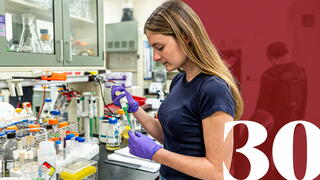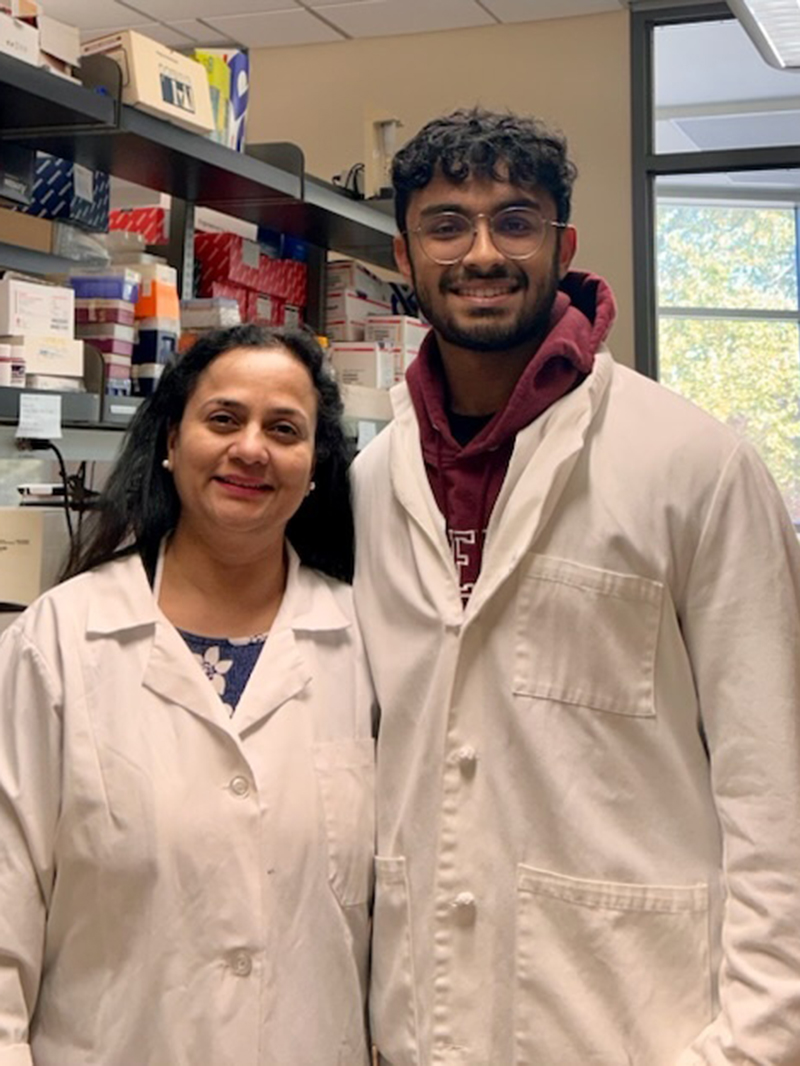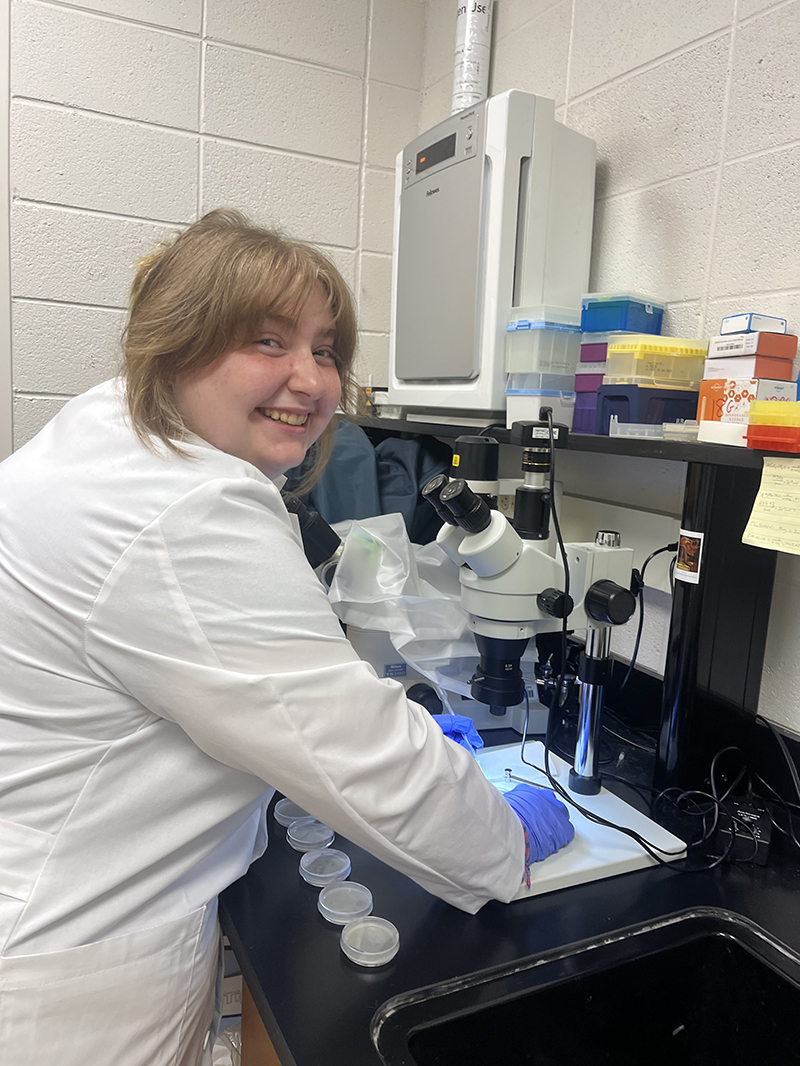Summer Scholars Program Marks Three Decades of Faculty-Student Collaboration
From disrupting the school-to-prison pipeline to studying the effects of chronic sleep deprivation on memory, Saint Joseph’s Summer Scholars have been conducting cutting-edge research for 30 years.

Biomedical sciences major Eric Lalu, BS ’25, was shadowing an oncologist as a sophomore when he met a patient with stage-four triple negative breast cancer (TNBC). Lalu explains that the patient’s cancer had metastasized to her spine, leaving her with mere years, if not months, to live.
Because of the aggressive nature of TNBC, traditional treatment options are limited and often come with adverse side effects that, in Lalu’s words, would’ve been “brutal” for the patient. It was an eye-opening encounter that not only changed his “why” for becoming a physician, but also for conducting research.
In Their Words
Eric Lalu, BS ’25
Biomedical Sciences Major
Lalu’s experience was a springboard for his research career at Saint Joseph’s University. This summer, under the direction of his mentor Bela Peethambaran, PhD, associate professor of biology, he’s been researching the mechanism that causes TNBC to proliferate as a Saint Joseph’s Summer Scholar.
For 30 years, the Summer Scholars Program has engaged undergraduates in cutting-edge research as early as their first year of college. The program, originally funded by a Howard Hughes Medical Institute grant in 1994, pairs approximately 70 students with faculty mentors each year to engage in scholarly exploration and publicly present their work.
“In conducting faculty-led research, students are learning skills that they otherwise would not easily gain in the classroom or even course-based labs,” says Summer Scholars Co-Chair Julia Lee-Soety, PhD, associate professor of biology and co-director of the Center for Undergraduate Research.
SJU News caught up with some of this year’s Summer Scholars and their mentors to learn more about their research.
Getting to the Root Cause of Why Breast Cancer Spreads

Student: Eric Lalu, BS ’25, biomedical sciences major
Mentor: Bela Peethambaran, PhD, associate professor of biology
Project Synopsis: “We focus on drug development in general, and the basis of drug development is finding out the mechanism of how cancer actually progresses and proliferates.” - Lalu
End Goal: “To look into alternative options, or complementary options, to the conventional drugs that we have in the market. In triple negative breast cancer patients, the treatment options are extremely limited, and the ones that we have are very aggressive and have severe side effects.” - Peethambaran
Most Interesting Aspect of Research: “Using what I learned in classes like Genetics or Biochemistry and applying that to practical research.” - Lalu
How Working with Students Has Impacted Your Work: “I have been incredibly lucky to have had a wonderful set of students who aren’t here just to check the box but rather are interested in this world of research. That's the reason that in my laboratory, we have had about 12 papers with undergraduate authors, which is so rare.” - Peethambaran
Ameliorating Neurodegeneration

Student: Kaitlyn Dixon, BS ’25, neuroscience major
Mentor: Adeboye Adejare, PhD, professor of pharmacology and toxicology
Project Synopsis: “We’re looking at Alzheimer’s disease and evaluating compounds on C elegans (basically microscopic worms) against standards that are already in the field. For example, we'll test our compounds against Memantine, which is an FDA-approved drug already on the market for treatment of Alzheimer's disease. When we're doing our experiments, we’re able to evaluate behaviorally and biologically if our compound has similar effects and the ability to ameliorate or reverse neurodegeneration.” - Dixon
End Goal: “The eventual goal is we learn something about Alzheimer's disease drug discovery. As a scientific community, you contribute to the literature and to the learning. What would be great — outstanding — is to have a compound that we discover reach clinical trials. We have not reached that level yet.” - Adejare
Most Interesting Research Experience: “We did an assay with a DAPI stain that binds to the C elegans’ DNA, and it’s a great way to see if neurodegeneration is present. In our control group there was high fluorescence (indicating the presence of nuclei or DNA), whereas in the neurotoxin group, it was very dark. It was fascinating to be able to see what we knew was occurring.” - Dixon
Why You Collaborate with Students in Your Lab: “The experience really helps them grow, whether they are looking for jobs or want to go to graduate school. In some cases, we've had students with publications and we've had students who have gone on to do presentations within scientific meetings. It's part of what I see as my duties as a professor to help the students shine.” - Adejare